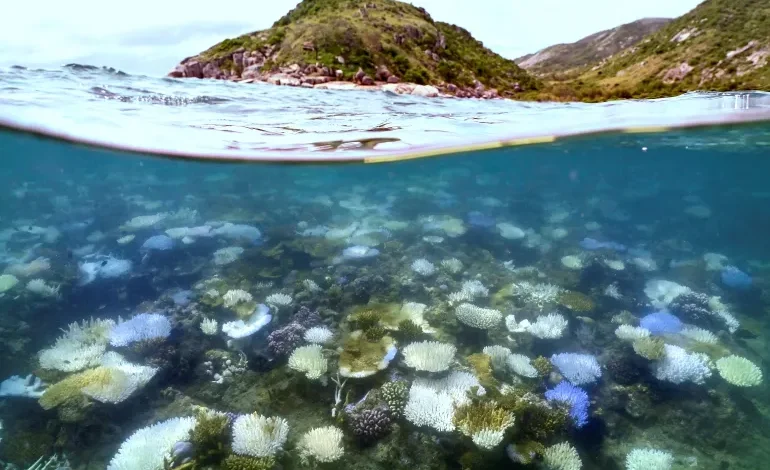Great Barrier Reef Hit by Worst-Ever Bleaching as Ocean Heat Soars

Australia’s Great Barrier Reef just went through its most widespread coral bleaching event on record, according to a new government-backed report that paints a stark picture of how climate change is battering one of the planet’s most iconic ecosystems.
The Australian Institute of Marine Science (AIMS) said it surveyed reef health between August 2024 and May 2025, and what they found was grim: bleaching across the reef was the most extensive ever recorded since monitoring began in 1986. The main culprit? Rising ocean temperatures driven by climate change.
The southern section of the reef was hit hardest. Coral cover there dropped by nearly a third, with levels falling to just 26.9 percent. Scientists say that part of the reef also experienced its highest-ever recorded heat stress.
“These declines in the north and south were the largest we’ve seen in a single year in nearly four decades of monitoring,” the authors noted in a piece for The Conversation.
The Great Barrier Reef, stretching 2,300km (about 1,400 miles) along Australia’s northeast coast, is often called the world’s largest living structure. It’s also a global biodiversity hotspot — home to around 400 types of coral, 1,500 species of fish, 4,000 mollusc types, and dozens of endangered species including dugongs and green turtles.
But all that is increasingly under threat.
Professor Selina Stead, CEO of AIMS, warned that bleaching events like this one are no longer rare. “Mass bleaching is becoming more intense and more frequent,” she said. “If we want coral reefs to survive, we need serious cuts in greenhouse gas emissions.”
Stead also stressed the need to manage local pressures and support reefs in adapting to the ongoing impacts of global warming.
UNESCO, which classifies the reef as a World Heritage Site, has previously pushed to list it as “in danger,” something Australia’s government has tried to avoid, largely over concerns about the potential hit to the tourism industry, which generates billions annually.
The reef’s struggles aren’t happening in a vacuum. A recent report by Australia’s Climate Change Authority laid out a tough truth: 93% of the extra heat trapped in Earth’s atmosphere is going into the oceans. And 2024 ocean temperatures have already broken the record set just a year earlier.
The report says the best shot at saving the reef lies in big fossil fuel exporters, like Australia, rapidly shifting to low- and zero-emission alternatives, and taking stronger action on short-lived climate pollutants like methane, which drive near-term warming.
Yet Australia remains one of the world’s top fossil fuel exporters, and ships coal past the reef from controversial projects like the Adani mine.









The latest news in your social feeds
Subscribe to our social media platforms to stay tuned